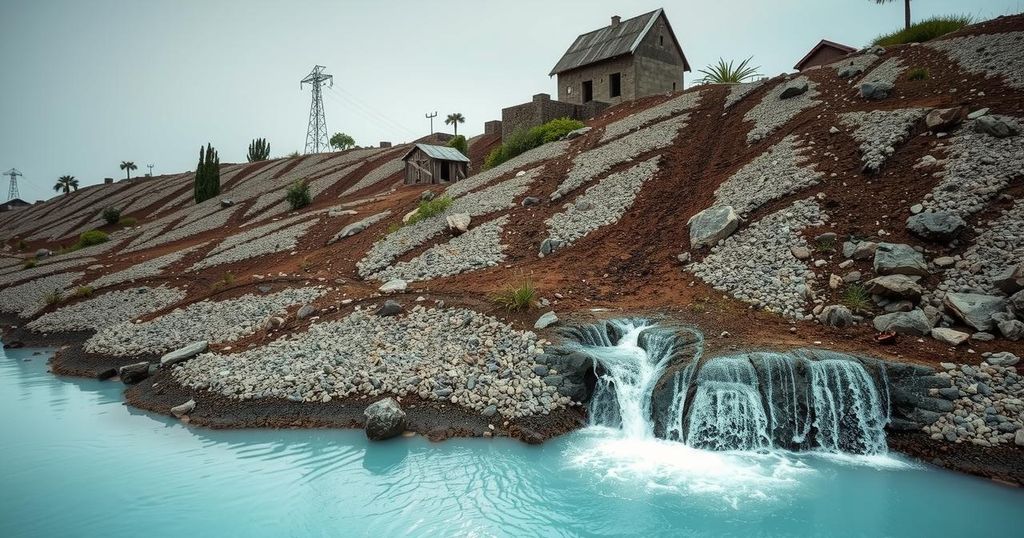Illegal Lithium Mining in Nigeria: Community Collusion and Government Challenges

Nigeria is rapidly emerging as a source of lithium, but illegal mining is rampant in regions like Kakanfu, facilitated by compromised officials and local leaders. Despite government efforts to clamp down on these practices, weak enforcement and community complicity hinder progress, leading to lost revenues and environmental damage. The situation underscores the need for structured governance to regulate the mining sector effectively and curb illegal activities.
Nigeria is becoming a significant source of lithium as demand for renewable energy technologies grows. However, illegal mining operations flourish in communities like Kakanfu in Kwara State, where local leaders and compromised officials collude with artisanal miners. PREMIUM TIMES’ investigation revealed a complex network enabling the illicit sale and transport of lithium, with community members negotiating deals that often bypass national regulations. Although the government is pursuing reforms to regulate mining activities and collect taxes, inefficiencies in enforcement and local corruption allow these illegal operations to persist, undermining potential revenues and environmental protections.
Proceeds from illicit mining contribute to a makeshift economy in Kakanfu, fueling the creation of informal camps that serve various illicit activities, including the presence of sex workers. A lack of legal oversight allows resources to be sold and smuggled with relative ease. With ongoing governmental crackdowns and community levies driving down demand, many artisanal miners are reverting to traditional farming. Despite the government’s announcement of new strategies and partnerships to structure the mining sector, challenges remain as local leaders and miners continue to engage in illegal practices.
The rise of lithium mining in Nigeria is closely linked to the global transition from fossil fuels to renewable energy sources, particularly for electric vehicle batteries. Yet, the sector is plagued by illegal mining activities due to inadequate regulatory frameworks, corruption, and local complicity. This has significant implications for the economy and the environment, as Nigeria potentially loses billions in revenue while community-driven illicit activities thrive. The federal government’s efforts to regulate the sector are ongoing, but the effectiveness of these measures is undermined by entrenched local practices.
In summary, the investigation into illegal lithium mining in Nigeria highlights the urgent need for reform within the mining sector. Strengthened governance structures are essential to curb illegal practices that undermine the economy and environment. The collaboration between local communities and illicit miners poses a formidable challenge, indicating that without effective oversight, Nigeria may continue to miss opportunities to benefit from its mineral wealth. Future success hinges on the government’s ability to enforce regulations and foster legitimate mining practices.
Original Source: dataphyte.com




